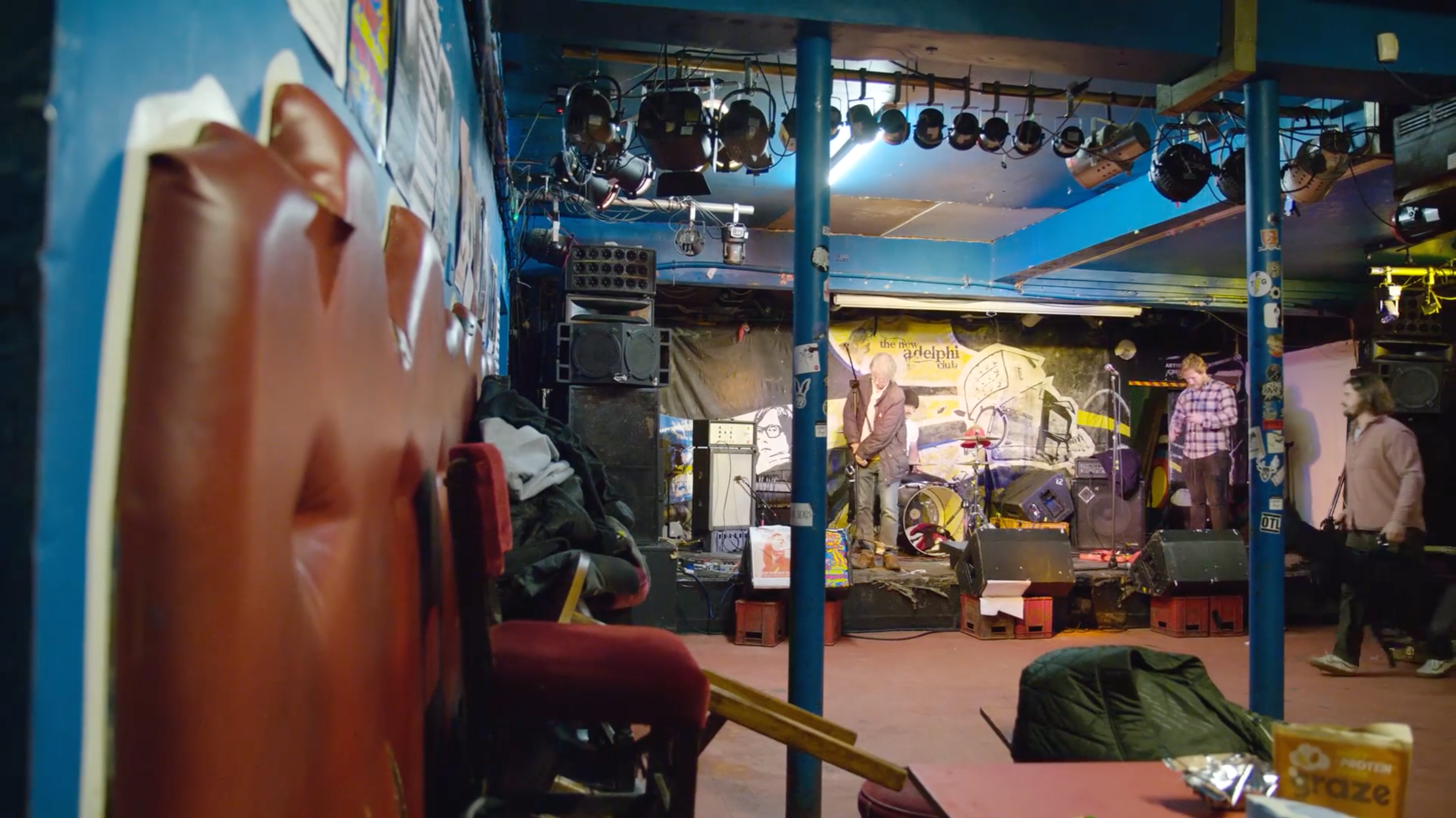
Filmmaker Pip Piper’s most recent documentary, ‘Long and Winding Road’, had its premiere last week at London’s Bush Hall. We were able to invite some of our Patrons and Hub members along; London Hub leader Alex Dickens was won over by its immersive, humble portrayal of the industry…

There’s a humming and persistent bed of sound running through Long and Winding Road – Pip Piper’s documentary about venues at the heart of local, live music – that will be instantly evocative to any gigging musician.
The twanging impatience of tuning up, the clatter and squeaks of setting up cymbals, the pops and buzzes and the ‘one two one twos’. All the preparation, the nervous excitement; each moment of practice comes to this point. It’s immersive, and apt that we were listening to it through the towering speakers of independent venue Bush Hall, where Amy Winehouse, Adele, REM, and Paul Weller have all passed through on their way to bigger and grander arenas.
However, much like Piper’s first film about the cycle of ruin and renaissance in a the music industry, his second (made in association with Independent Venue Week) is less focused on journeys to stardom, and more interested in those volunteers and professionals who, day in day out, exist on the precipice of survival – both in the spotlight and behind the scenes.
As many of us know, creative arts at the grassroots level is a risky endeavour, and LAWR introduces us to a host of characters, often colourful, whose livelihood or community is entwined inextricably with these small and often beaten-up music venues. Some days the room is bouncing; on others it’s three men and a dog in the corner. Some days you find the next big thing, on others you’re staring down closure because of new developments and noise complaints. It is a lifestyle of ‘smoke and blurred visions’, as it’s poetically described by one venue owner.
The film’s heart and its narrator is Philip Selway. Selway is most commonly found behind the drumkit for Radiohead, but his charming demeanour and talk of family and home comforts belies his pioneering rockstar accomplishments.
In LAWR, he is simply a gig goer, a fan, and is thrust back into the beginnings of a band’s journey as he takes in seven gigs at seven venues in seven days – touring the country with Pip and his team in the back of his van. Though nowadays Radiohead would be rarely found away from the biggest stages, it is immediately clear that Selway has a deep affection for the small and the intimate, as well as acknowledging its place in the ecosystem of new music and new bands.

From iconic and established independent venues like The Leadmill in Sheffield or The Adelphi in Hull (with its curmudgeonly but adored longstanding owner Paul Jackson), to newer projects focussed on training and support like The Warren or The Brudenell Social Club, the film’s scale and scope is impressive as it anchors the stories of these halls and back rooms not in their successes, but in the everyday people who give their time and money to serve and champion artists and creatives.
Their greatest accomplishments are often staying open for another month, or creating community where there was none, or seeing the kid that hung around outside train and take on responsibility as a technician.
Yet each story and individual seems to see the spectre of challenge on the horizon; the fact pubs and clubs are closing at record levels, ravaged by developers and legislation and simply dwindling audiences content with consuming music and entertainment on the few square inches of our phone screens. Undeterred, the bands still get onstage, still the ritual of tune-ups starts again, the doors open once more. There is something special inside these spaces, something that cannot be bottled or bought.

What is starkly clear about both Selway, Piper, and the film is that there is a humility and a sincerity in their message. It isn’t overly emotive like a charity appeal, in fact in the post film Q&A hosted by Steve Lamacq, Piper mentions the deliberate decision to leave some of the more emotional elements out of the film. Instead, it gives the majority of its time and its spotlight to those not usually accustomed to it, which in a film with contributions from members of Radiohead, Portishead, Pink Floyd, and artists like Nadine Shah and Richard Hawley, is a noticeable and notable choice. In Piper’s interview with Sputnik he remarks:
“I am not a Christian filmmaker, nor am I a secular one.
“I am a filmmaker, period. I am also a follower of Jesus and that creates a life defining, distinct and deep DNA in who I am and how that outworks in what I do and say and engage with.”
In the film’s championing of community, of mutual support and encouragement, of daring to follow creativity and the ability to try and to fail and then try again, his ‘deep DNA’ is evident, and is evidently displayed through both his technical and storytelling craft.
The passion, drive, energy, and wholehearted belief in the individuals on film leaves you far more uplifted than defeated, and I believe that’s exactly where Piper would want you to be.
At another point in the post-film interview, Pip said the one thing he would want you to feel as the credits roll is ‘Where is my nearest gig venue and when can I go there?’. As I jumped off my bus home through sprawling London streets and walked past a band just taking the stage at my local pub, these words rang in my mind. Why not, I thought, and I entered the cacophony of tune-ups, mic checks, smoke and blurred visions once more.
Independent Venue Week 2020 begins on Monday 27th Jan, with gigs across the country. Pip Piper is a filmmaker and founder of Blue Hippo Media and One Small Barking Dog.
